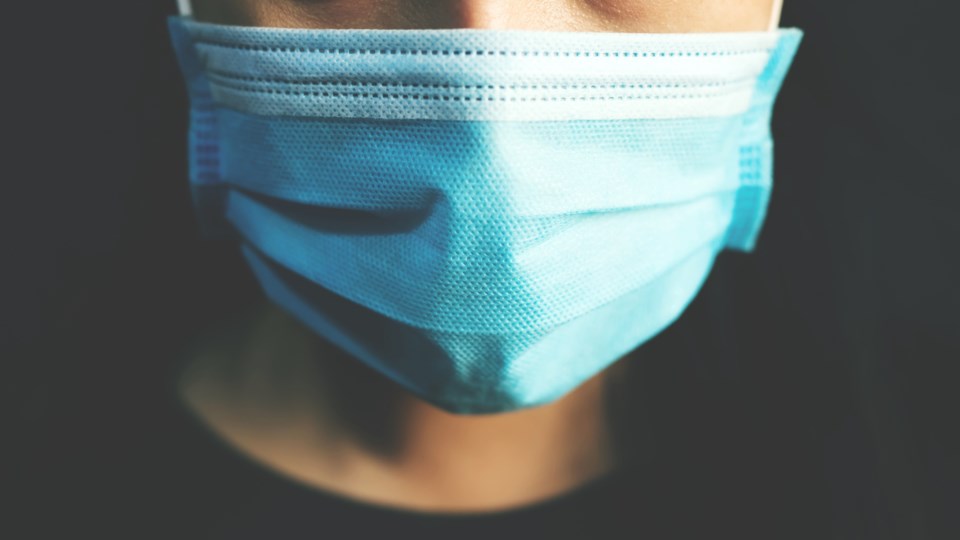An alliance of health officials from across the Denver metro region this week issued a plea for people to continue abstaining from gatherings and to keep wearing their masks and maintaining their social distance, even during the holidays.
“The holiday season — when gatherings across households are more common — is risky. This year needs to be different. Staying within your household, wearing masks, avoiding crowds, physical distancing, and good hand hygiene are proven strategies that prevent the spread of COVID-19,” the Metro Denver Partnership for Health stated in a news release.
The partnership is led by six public health agencies serving the seven-county Denver metro area: Boulder County Public Health, Broomfield Department of Public Health, Denver Department of Public Health & Environment, Denver Public Health, Jefferson County Public Health, and Tri-County Health Department, serving Adams, Arapahoe, and Douglas Counties. Its work impacts nearly 3 million Coloradans — 60% of the state’s population — who live in the region, according to the release.
The next four weeks will determine the course of the pandemic this winter in the region in which all of the counties, including Boulder, in November moved to level red on the state’s COVID dial dashboard and implemented restrictions on gatherings, indoor dining and activities, the partnership stated in the release.
The region has seen recent slowing in new cases and hospitalizations from record highs earlier this fall but as “the winter holidays continue, and school districts and families plan for in-person learning in early 2021, now is the time to double down, not ease off, efforts,” the release stated.
“Residents across the metro Denver region are doing their part to slow the current surge, and we are grateful because we know these efforts come at a cost,” Dr. Bill Burman, executive director of Denver Public Health and co-chair of the Metro Denver Partnership for Health, stated in the release. “Now is the worst time for us to become complacent. Our counties still have very high case rates, and we have already witnessed the health and economic consequences of loosening distancing and mitigation policies too quickly.”
The partnership pointed to the experiences of other states, such as Arizona and Texas, where recovery from a first surge did not prevent a second.
“Letting down our guard will only relight the fire,” Dr. John M. Douglas, Jr., executive director of Tri-County Health Department and co-chair of partnership, stated in the release. “We saw rates of new COVID cases increase five and six-fold in early October through mid-November in the metro region, with significant increases in lives lost. We cannot get all kids back into school and chart a safe pathway for further re-opening businesses if we have a return to these levels.”
As of Tuesday evening, there were 313,552 cases, 17,481 hospitalizations and 3,601 deaths due to COVID statewide, according to Colorado Department of Public Health and Environment data.
In Boulder County, confirmed and probable cases totaled 13,941 on Tuesday, hospitalizations stood at 398 and deaths numbered 171, according to county data. The county’s number of new cases per 100,000 people the past 14 days was 346.7 as of Tuesday.
“The toolkit for control of what will hopefully be the final phase of the pandemic continues to expand,” Jeffrey Zayach, executive director of Boulder County Public Health, stated in the news release. “In addition to robust testing capacity and better treatments, we are expecting new federal economic support and identifying strategies for carefully re-opening businesses and, most importantly, beginning to provide highly effective vaccines. Taken together, these tools can support us on the road to recovery with our communities becoming more and more open and thriving.”
The first doses of vaccine arrived in Colorado on Dec. 14 and health care workers in Longmont began receiving them on Dec. 17.
Congress this week passed a $900 billion COVID relief package that includes almost $9 billion for states to aid in vaccine distribution and $22 billion for coronavirus testing and tracing. The relief measure also includes $600 direct payments to Americans, an additional $300 per week in unemployment benefits and billions for loans to small businesses.
President Donald Trump on Tuesday night blasted the pandemic relief package in a video posted to Twitter, in which he said the package "really is a disgrace." Chief among his complaints is that the bill delivers too much money to foreign countries, but not enough to Americans. He called for Congress to amend the bill and double the $600 direct payments most Americans would receive, or go even higher, perhaps to $4,000 for a couple.
— Donald J. Trump (@realDonaldTrump) December 23, 2020



